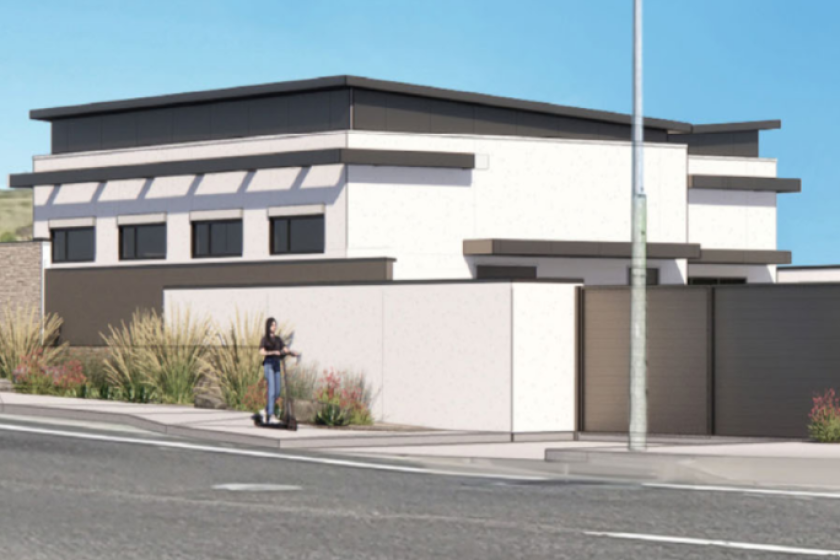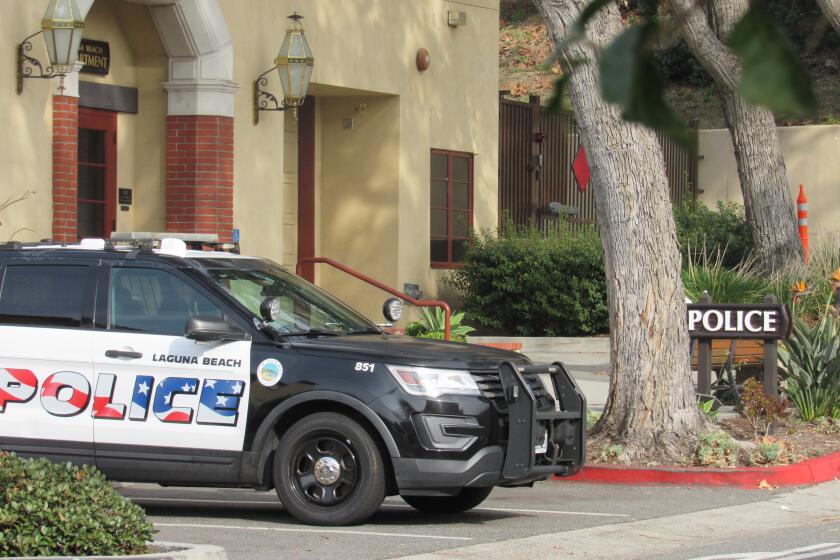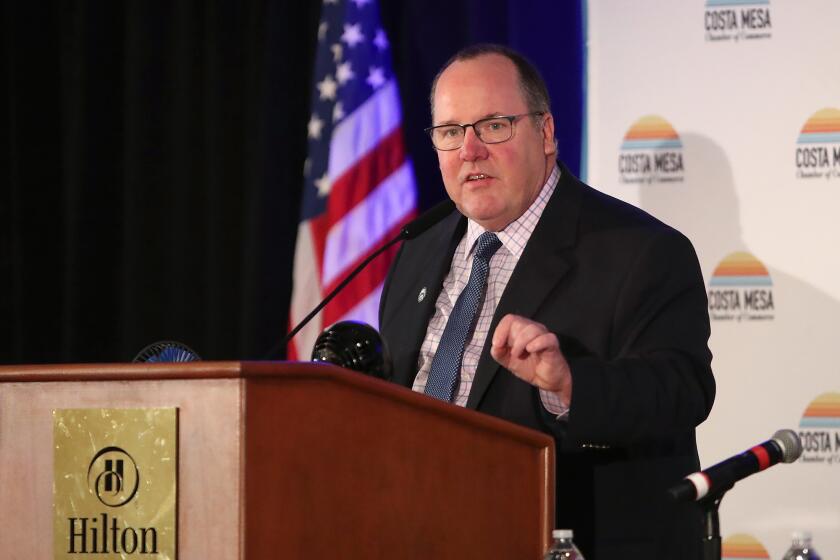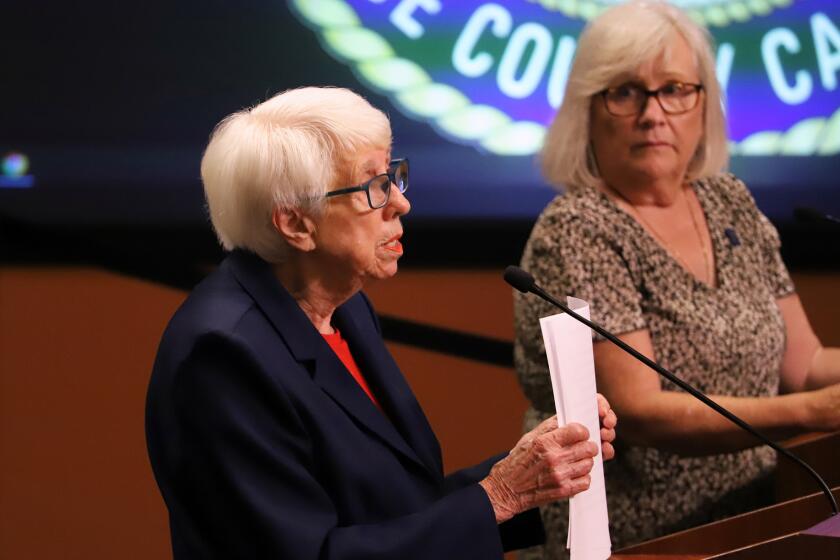Foley wins race for Costa Mesa mayor; Marr, Chavez and Reynolds claim other council seats
Katrina Foley, who served as Costa Mesa mayor in 2016-17 after being appointed by her colleagues on the City Council — and before being removed by them — was elected to the post by the city’s voters Tuesday.
Foley defeated fellow council member Sandy Genis in the race to become Costa Mesa’s first directly elected mayor.
With all precincts reporting early Wednesday, Foley had received 58.5% of the vote, compared with 41.5% for Genis, the current mayor.
Meanwhile, Andrea Marr, Manuel Chavez and Arlis Reynolds — all part of a candidate slate along with Foley — captured the three other City Council seats up for grabs this year.
The winners of those spots get four-year terms, while the mayor will serve for two years.
“I think the early returns look really favorable for our entire team, and it shows that our community is really wanting to see a change in leadership and something more positive, collaborative and community-oriented,” Foley said in an interview at about 8:40 p.m. Tuesday.
Genis could not be immediately reached for comment Tuesday night.
Mayoral race
The effects of the high-powered political bout between Foley and Genis have reverberated through the community for months, unearthing tensions between the one-time political allies and splintering previously aligned residents and community activists into rival camps.
That public schism started almost exactly a year ago, when Genis joined two of her council colleagues to remove Foley as mayor and appoint herself to the position.
Starting this year, the power to choose Costa Mesa’s mayor shifted from the council to the public. That change was part of a wider overhaul of the city’s election system, which also included a switch to district-based voting.
Historically, residents citywide could vote for any council candidate running in a given year. Now, voters in designated areas choose one candidate from their area to represent them.
The alterations mean the council will expand from five members to seven.
Council district contests
Despite the geographical distinctions, candidates in each council district have tussled over some common issues throughout the campaign — with many saying they would focus on improving public safety, addressing local homelessness issues, securing the city’s financial position and working to curtail the neighborhood effects of sober-living homes and other residential addiction-recovery facilities.
In the race to represent District 3, which includes College Park, Mesa del Mar and a portion of the upper Eastside, Marr was ahead of her sole opponent, Brett Eckles, 55.7% to 44.3% with all precincts reporting.
In District 4 — which covers a dense pocket of the Westside south of the Fairview Developmental Center, ranging from Harbor Boulevard west to Monrovia Avenue and south to West 17th Street — Chavez pulled in 56.8% of the vote, compared with 27.3% for Michelle Figueredo-Wilson and 15.9% for Steve Chan.
Reynolds had 53% of the vote in District 5, which wraps around District 4, taking in downtown and the remainder of the Westside. Her two opponents, current Mayor Pro Tem Allan Mansoor and Rebecca Trahan, received 34.2% and 12.8%, respectively.
Twitter @LukeMMoney
All the latest on Orange County from Orange County.
Get our free TimesOC newsletter.
You may occasionally receive promotional content from the Daily Pilot.




